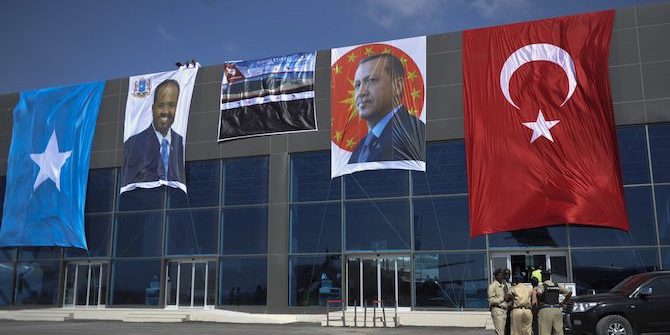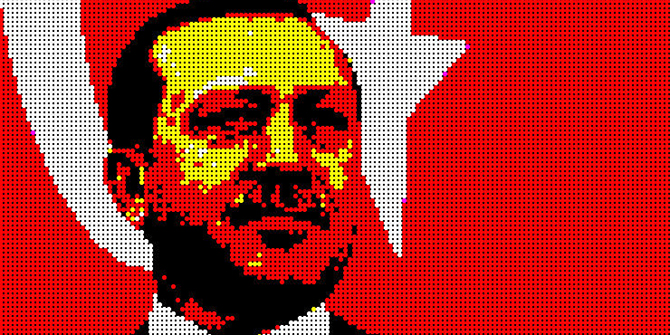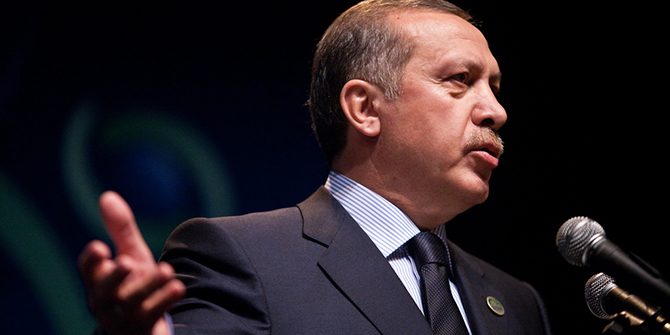by Nathaniel Handy
This piece was originally published on Fair Observer on 4 November 2015.
A decisive mandate to govern should give the Turkish government pause to consider what it could achieve.

Two dominant themes in global media coverage have accompanied the landslide victory by the Justice and Development Party (AKP) in the Turkish general election of 1 November. The first is that the victory is a surprise, and the second is that it is bad news for Turkey.
Both these reactions betray a bias in much international media toward a reading of Turkish politics and society from the perspective of the secular urban elite — a section of society that has traditionally been heavily represented in the media and civil society, and has longstanding connections to what could be broadly termed the Western world.
These reactions hinder a clear understanding, firstly, of what has happened in Turkey, and secondly, of where it might be heading in the future.
First, the surprise: It is vital to appreciate the fact, borne out once more at the ballot box, that almost half the electorate supports the AKP. This is a considerable mandate by any democratic measure. They may not be drawn in great numbers from the traditional secular elite, and they may not be very active in the global media marketplace, but they are the hidden majority that has consistently returned the AKP to power since 2002.
What’s more, they are nothing new. Islamist politics have existed for as long as Turkey has existed. It took a concerted campaign over many decades for the then-ruling People’s Republican Party (CHP) and its friends within the military and judiciary to obscure that fact.
The latest results once again show that across the vast majority of Anatolia, conservative political Islam is a vote winner. It may not marry up with international notions of Mustafa Kemal Ataturk’s Turkey, but it is the reality. That said, the relative collapse in AKP support to 40% at the June poll should give the party’s leadership pause for thought.
Split Society
The AKP victory is seen as the triumph of a simple message during a time of crisis: Without us, there will be chaos. While the AKP allure extends beyond simple security politics (otherwise the Nationalist Movement Party would sweep the boards), there is truth in this assessment. It reveals not so much the strength of the AKP’s argument as the weakness of the opposition. Turkey has no other party that is offering a credible vision that can threaten AKP dominance.
Turkish society is not so much polarised as it is split between a large, conservative, religiously inclined majority and small rumps of secularists, extreme nationalists and Kurdish voters. A truly effective alternative vision would have to engage with and persuade that large, conservative and religiously inclined majority.
The reality of the November vote was that if it didn’t return a majority AKP government to power, the only alternative was chaotic coalition government. Turks have bad memories of such scenarios from the 20th century, and given the stark choice, is it really surprising that so many voted for what they saw as stability?
Their judgment was borne out almost immediately in the financial markets, which reacted positively to the results. After all, Turkey is a country that is badly in need of economic stability in the face of massive regional upheavals. This leads us to the second question: Is the AKP bad news for Turkey?
Certainly, over a decade of rule by a single party is questionable in any democracy. Politicians become comfortable and corrupt, the system begins to lose its accountability and the opposition becomes disenchanted with the entire process.
President Recep Tayyip Erdogan has been particularly guilty of a lack of consensus politics; though in the world of Turkish politics, consensus can be a hard thing to find. The slide toward nationalist rabble-rousing and the renewal of hostilities with the Kurdistan Workers’ Party (PKK) in the run-up to the election were ugly moves that may have drawn clear political dividends, but nonetheless are divisive and dangerous.
The 2023 Vision
What the AKP’s biggest ever mandate to govern does allow is a new opportunity. It is a chance for a strong single party government to drive the agenda in the country once more, and it will be a mark of those in the new government of what they choose to do with it.
The AKP set out in the early 21st century upon a road to deep structural reform, European Union (EU) membership negotiation and a peace process to solve the Kurdish issue. Such ambitions laid out the possibility of transforming a partial democracy hamstrung by a highly repressive military constitution and elite structures more concerned with preserving the privileges of the state than promoting the freedoms of the people.
The AKP must once again demonstrate the resolve to truly change Turkey for the better, rather than repeating the errors of the past in another guise.
This is particularly true of President Erdogan, the most influential leader since Ataturk himself and still the personification of the party. He has his eyes set upon 2023—the centenary of the republic and a marker post for his transformation of a nation. The success or failure of Erdogan and the AKP will be marked in the type of country that emerges in the years to come. They have a mandate once more and must use it wisely.
Turkey could resolve its Kurdish conflict. It could institute reforms toward greater EU integration. It has already shown itself to be the most open country to intakes of refugees from the Middle East conflicts, and it has become a major transit point for migration into Europe.
Were the AKP to resolve the conflict within their country and to move toward their stated 2023 goal of becoming a top ten world economy, many of those migrants might actually consider Turkey a destination rather than a transit point. There is no better marker of a successful society than when outsiders wish to join you.
Turkey today is a long way from such a place, but a vision was laid down and the AKP needs to find that vision again.
 Nathaniel Handy is a writer and academic with fifteen years of experience in international print and broadcast media. He holds an MA in Middle East Studies from the Institute of Arab and Islamic Studies at the University of Exeter and is the author of the monograph ‘Turkey’s Shifting Relations with its Middle East Neighbors During the Davutoglu Era: History, Power and Policy‘ (Bilgi Dergisi Journal, 2011). He tweets at @padstm.
Nathaniel Handy is a writer and academic with fifteen years of experience in international print and broadcast media. He holds an MA in Middle East Studies from the Institute of Arab and Islamic Studies at the University of Exeter and is the author of the monograph ‘Turkey’s Shifting Relations with its Middle East Neighbors During the Davutoglu Era: History, Power and Policy‘ (Bilgi Dergisi Journal, 2011). He tweets at @padstm.






